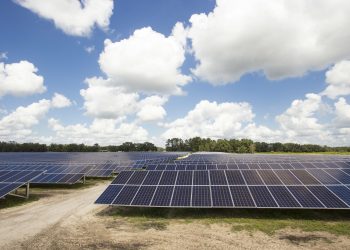The initiative is in line with UN Secretary-General António Guterres’s longstanding assertion that “moving beyond GDP is fundamental to building an economic system that gives value to what counts – human well-being – now and in the future, and for everyone”.
While GDP has become the gold standard by which economic development is judged, it was never intended to encompass the overall wellbeing and progress of any single nation.
Neither does it capture the value of human, social or nature capital, explained Özge Aydogan, Director of UN Geneva’s Beyond Lab, which takes a lead thinking about social innovation and sustainability.

Özge Aydogan, Director of UN Geneva’s Beyond Lab.
“That’s something that GDP measures very poorly – or not at all, in fact,” Ms. Aydogan said, “so, the whole movement around ‘Beyond GDP’ is to look into ways of moving from an extractive economy – which we are on right now – into an economy where capital…is not only created for economic purposes that only benefit a few, but actually for people and planet.”
In a bid to integrate untapped human capital, natural resources and wellbeing into how a country’s wealth might be calculated in future, the Beyond Lab has been brainstorming with government officials, researchers and thought leaders in sustainability.
Regenerative economies
But what policymakers still haven’t worked out is what a post-GDP economy would look like – neither have they agreed on the best path to get there.
For Ms. Aydogan, an ideal scenario for 2050 would be a regenerative economy – one that isn’t only extracting resources to derive revenue, but rather, creating wealth through untapped virtual assets.
In practical terms, countries would factor in other wealth-creating assets, such as a country’s natural resources.
“You replenish nature, for instance,” she explained, adding that more holistic metrics would not necessarily replace GDP. “What we’re really actually looking into is to complement GDP.”

An mother and her baby are among those benefiting from services offered at a UNICEF-supported health centre in Malawi.
Measuring happiness
Alternative economic metrics have been around for some time. In 1972, King Jigme Singye Wangchuck of the small, landlocked Asian state of Bhutan coined the Gross National Happiness index.
It captures four areas: sustainable development, conservation of the environment, preservation and promotion of culture – and good governance.
Likewise, the Human Development Index is often cited as another alternative to evaluate the overall development and well-being of a nation, taking into account life expectancy, standards of living, and education.
An increasing amount of research reveals that the GDP model is insufficient, says Nathalie Bernasconi of the International Institute for Sustainable Development (IISD) – and change-makers must find ways to translate the scientific evidence into national policies.
They should also create incentives for governments to move away from an outdated, GDP-heavy paradigm that was created in the 1930s, in the aftermath of the Great Depression, by the economist Simon Kuznets to measure economic output and help policymakers respond to the crisis.
“GDP alone cannot guide us towards this future,” said Ms. Bernasconi, who is Vice-President of Global Strategies and Managing Director for Europe at IISD.
Not sustainable
GDP is not necessarily a reliable indicator of sustainability and can even increase after costly accidents such as oil spills, owing to intensive clean-up operations, as was the case with the BP Deepwater Horizon oil disaster in 2010.
Another environmental disaster in Alaska in 1989 – the Exxon Valdez spill – temporarily boosted GDP in the United States, thanks to job creation and a rise in demand for services.
But while the tragedy initially inflated GDP, it also caused pervasive harm to the ecosystem and local communities – long-term losses not captured by the indicator.
“Why do we value dead things? Why value a dead tree, rather than the living tree providing oxygen?” said Bingying Lou of the Beyond Lab, citing an indigenous environmental activist.

The SDGs focus on eliminating poverty and providing people with opportunities to prosper.
Multilateralism can fix debt crisis
Among those supporting calls to think creatively about reforming GDP and to “recommit to multilateralism” to find solutions for heavily indebted countries held back by classic financial models created after the Second World War, is Ambassador Matthew Wilson of the Permanent Mission of Barbados to the UN in Geneva.
“Recent months have shown that when you think you’re beyond – something, or someone, pulls you right back in,” he said.
Mr. Wilson added that while multilateralism has not worked perfectly, the world would be in a worse position without it.
We need to be forward-thinking but also active in solving issues like debt and development assistance, the ambassador stressed.
‘Status quo not viable anymore’
Whether politicians will venture away from campaigns focused on how much they have grown GDP and adopt other measurements, remains to be seen, said Ms. Aydogan.
“We have been taught a certain way to look at the economy,” she said. “But at the same time, the fact that we’re hitting all these planetary boundaries…shows us that the status quo is just simply not viable anymore.”
To take the discussion one step further, policymakers will convene at the International Conference on Financing for Development in Seville, Spain from June 30 to July 3, 2025, and at the World Social Summit in Doha, Qatar in November 2025.

